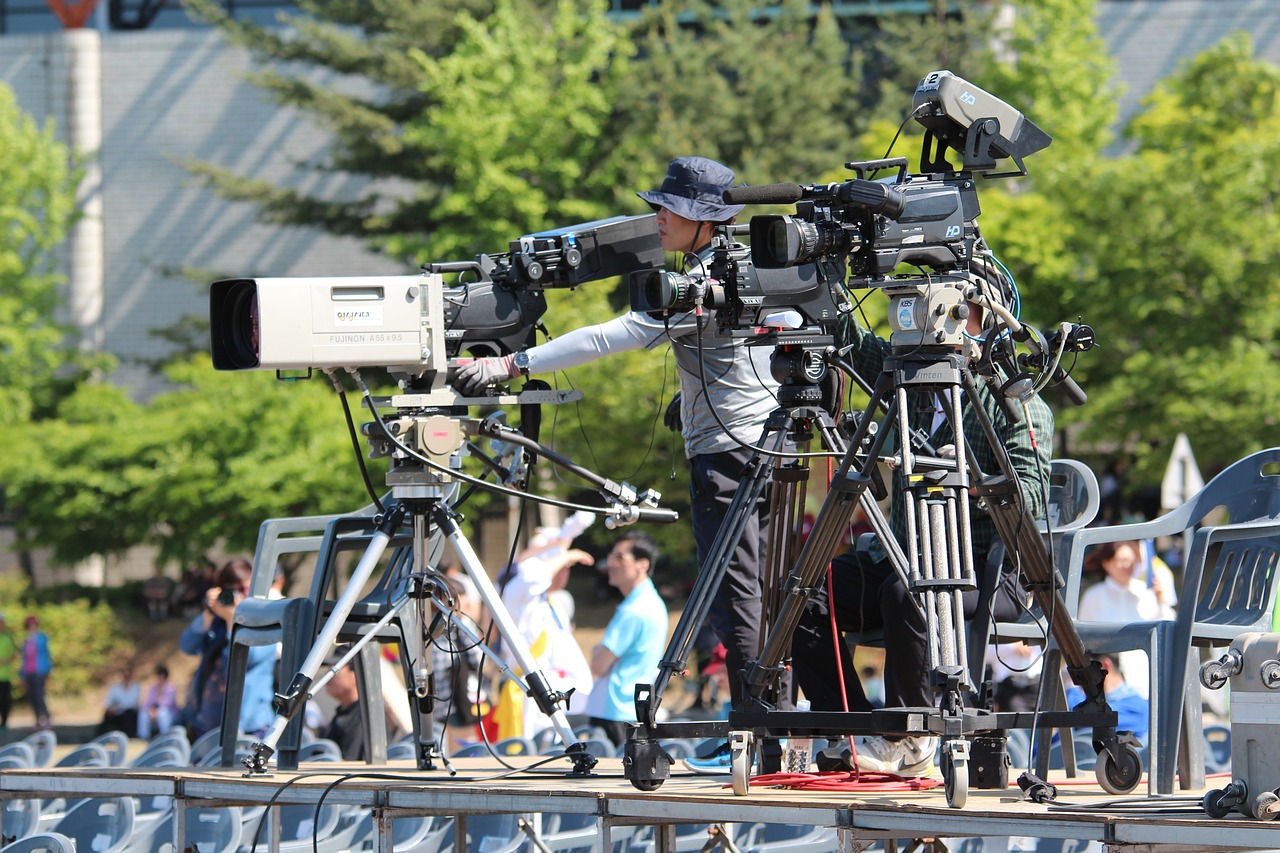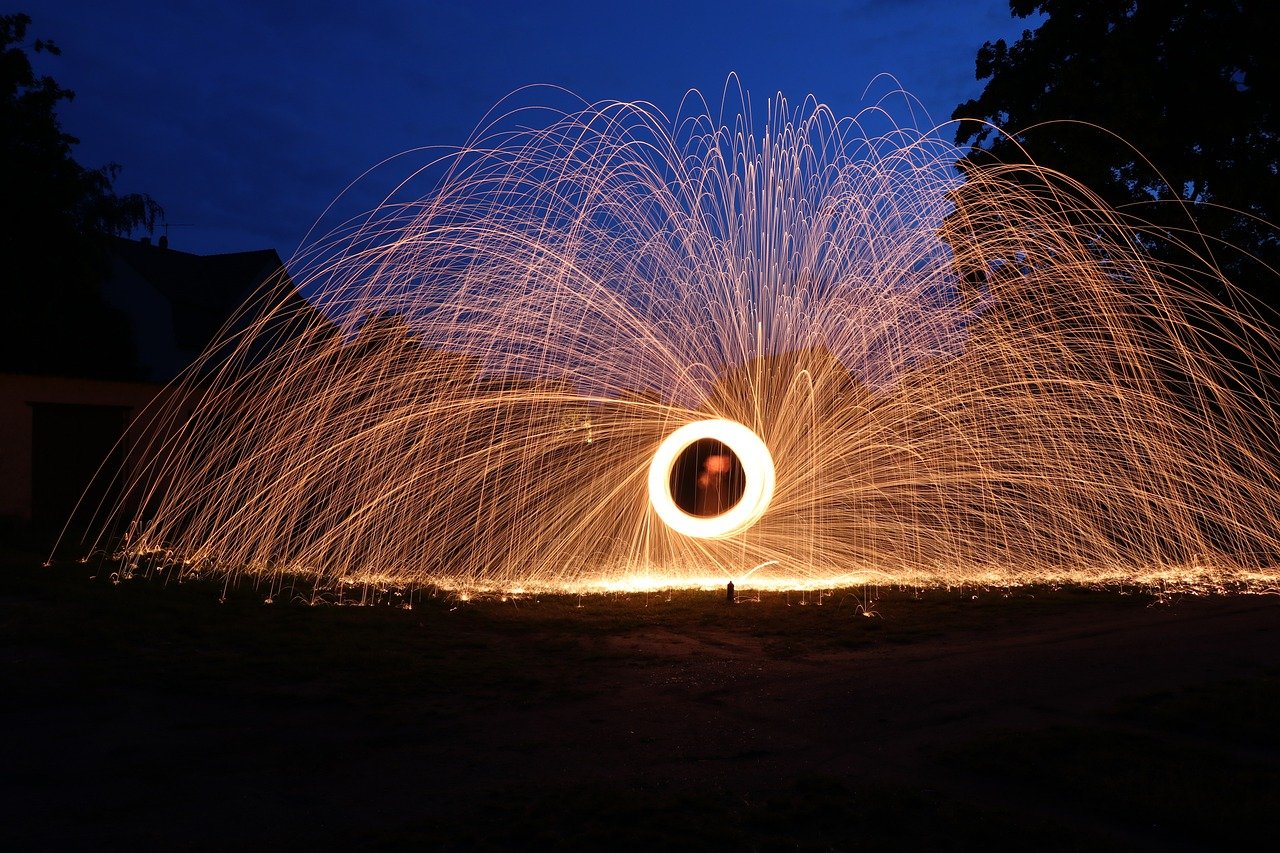Music Video Videographer: Capturing the Rhythm of Visual Storytelling Introduction In today's digital age, music…
Sports Videographer: Capturing the Essence of Athletic Excellence
Introduction
In the fast-paced world of sports, capturing the thrilling moments, the displays of skill, and the emotions of athletes is crucial. Enter the sports videographer, a talented professional who specializes in filming and documenting sports events. From high-flying slam dunks to heart-stopping goals, a skilled sports videographer is adept at capturing these moments, creating lasting memories for athletes, fans, and future generations.
Sports Videographer: The Art of Preserving Athletic Memories

Sports videography is a unique and challenging field that requires technical proficiency, artistic vision, and an in-depth understanding of sports. A sports videographer is responsible for capturing live action, recording highlights, and producing compelling footage that showcases the essence of athletic excellence. Through their lenses, they immortalize the triumphs, the defeats, and the stories that unfold on the field, court, or track.
The Role of a Sports Videographer
A sports videographer’s role extends beyond merely operating a camera. They are storytellers, using their skills to narrate the captivating journey of athletes. Their responsibilities include:
- Filming Sports Events: The primary duty of a sports videographer is to film sports events, capturing the action, intensity, and emotions associated with the game. They must possess a keen eye for detail and the ability to anticipate pivotal moments.
- Highlight Reel Creation: A sports videographer compiles the best moments from a game or an athlete’s career into an engaging highlight reel. This reel showcases the athlete’s skills, achievements, and unique playing style, leaving a lasting impression on viewers.
- Technical Expertise: To excel in sports videography, professionals must be well-versed in the technical aspects of their craft. This includes proficiency in operating various cameras, understanding lighting conditions, and employing techniques such as slow-motion and zooming to enhance the visual impact.
- Post-production Skills: Sports videographers also possess proficiency in post-production, where they edit and enhance the captured footage. They utilize software and editing techniques to refine the visuals, add music and graphics, and create a polished final product.
- Versatility: Sports videographers often work across different sports, each with its unique challenges. They adapt their filming style and techniques to suit the specific demands of each sport, ensuring the footage reflects the dynamics and nuances of the game.
Sports Videographer: Master of the Camera

A sports videographer’s expertise lies not only in their technical knowledge but also in their ability to create stunning visuals that evoke emotions. By skillfully manipulating angles, focusing on key moments, and utilizing the camera’s capabilities, they transform a sports event into a cinematic experience.
The Power of Angles
Angles play a crucial role in sports videography, as they can dramatically enhance the impact of a shot. Here are some commonly used angles in sports videography:
- Wide-angle Shots: These shots capture the entire playing field, providing a sense of scale and context. Wide-angle shots are often used at the beginning of a game or to showcase the overall strategy and positioning of athletes.
- Close-up Shots: Close-up shots focus on the individual athlete, highlighting their emotions, expressions, and skill. These shots bring the audience closer to the action, allowing them to experience the intensity of the moment.
- Overhead Shots: Overhead shots, captured from a bird’s-eye view, offer a unique perspective of the game. They are particularly effective in team sports like basketball or soccer, where they reveal the intricate movements and strategies of players.
- Tracking Shots: Tracking shots follow the movement of a specific athlete or object, such as a ball. By smoothly tracking the action, sports videographers create a dynamic visual experience, keeping viewers engaged.
The Art of Focus

Focus is crucial in sports videography, as it directs the viewer’s attention to the intended subject. A sports videographer must have a sharp eye for maintaining focus amidst the fast-paced action. They utilize techniques such as:
- Selective Focus: By selectively focusing on a particular athlete or moment, sports videographers highlight the key elements of a game. This technique helps create a sense of depth and visual hierarchy within the frame.
- Rack Focus: Rack focus involves shifting the focus from one subject to another within a single shot. This technique adds depth and dimension to the visuals, emphasizing different aspects of the game or the athletes.
The Magic of Slow Motion
Slow motion is a powerful tool in sports videography, allowing viewers to appreciate the intricate details of an athlete’s movement. By capturing moments at a higher frame rate and then playing them back at a slower speed, sports videographers emphasize the grace, power, and skill displayed by athletes.
Sports Videographer: Frequently Asked Questions

FAQ 1: What equipment does a sports videographer use?
A sports videographer utilizes a range of equipment to capture the action-packed world of sports. Some essential tools include:
- High-definition cameras with interchangeable lenses for versatility
- Stable camera mounts, such as tripods and monopods, for steady shots
- Telephoto lenses for capturing distant action
- Wireless microphones for recording clear audio
- Portable lighting equipment to ensure optimal visibility in any setting
FAQ 2: How do sports videographers prepare for an event?
Preparing for a sports event requires careful planning and organization. Sports videographers typically:
- Research the sport: Familiarize themselves with the rules, key players, and important moments of the game.
- Scout the venue: Visit the location beforehand to identify the best shooting positions, lighting conditions, and potential obstacles.
- Coordinate with the event organizers: Communicate with event coordinators to understand any restrictions or guidelines for filming.
FAQ 3: How long does it take to create a highlight reel?
The time required to create a highlight reel depends on various factors, including the length of the game or event, the number of key moments to include, and the complexity of the editing process. Generally, it can take several hours to several days to produce a high-quality highlight reel.
FAQ 4: How can sports videography benefit athletes?
Sports videography offers numerous benefits for athletes, including:
- Skill improvement: Athletes can analyze their performance, identify areas for improvement, and refine their techniques by reviewing their footage.
- Recruiting tool: Athletes seeking scholarships or professional opportunities can showcase their skills through highlight reels, increasing their chances of attracting attention from coaches and scouts.
- Documentation of achievements: Sports videography preserves an athlete’s memorable moments and achievements, allowing them to relive their successes and share them with others.
FAQ 5: Is sports videography a viable career option?
Yes, sports videography can be a fulfilling and viable career option for individuals passionate about both sports and videography. With the increasing demand for high-quality sports content across various platforms, there are ample opportunities for sports videographers in the sports industry, including working for sports networks, professional teams, or as freelancers.
FAQ 6: How can I improve my sports videography skills?
To enhance your sports videography skills, consider the following tips:
- Study the work of experienced sports videographers: Analyze their techniques, camera movements, and editing styles to gain inspiration and insights.
- Practice regularly: Film various sports events, experiment with different angles and techniques, and learn from each experience.
- Stay updated with technology: Keep abreast of the latest advancements in cameras, editing software, and equipment to enhance your capabilities.
- Seek feedback: Share your work with fellow videographers or mentors who can provide constructive criticism and help you grow as a professional.
Conclusion
A skilled sports videographer plays a vital role in preserving and immortalizing the captivating moments that unfold in the world of sports. Through their technical expertise, creative vision, and dedication, they capture the essence of athletic excellence and provide athletes and fans with lasting memories. Whether it’s a thrilling game-winning shot or a breathtaking display of skill, sports videographers are the unsung heroes behind the lens, ensuring that these moments are cherished for generations to come.




